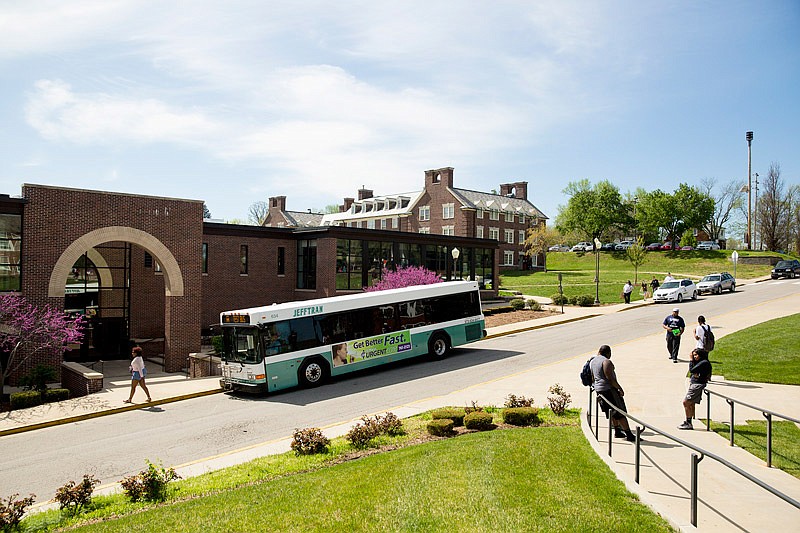Extended JeffTran hours was the top recommended improvement from the Jefferson City community, according to the JeffTran survey and meetings.
During Thursday's Public Works and Planning Committee meeting, the Capital Area Metropolitan Planning Organization - which includes Jefferson City and other Mid-Missouri municipalities - presented the first part of the JeffTran system-wide assessment, which discussed the existing conditions of the bus system and comments from the public and stakeholders.
In June, JeffTran and CAMPO conducted an online survey asking locals about JeffTran's services and any changes that could be made. Transportation planner Katrina Williams said approximately 440 people took the survey. CAMPO also held meetings with stakeholders and the public earlier this year.
Members of the public and stakeholders expressed interest in expanding JeffTran's hours of service throughout the week and providing more routes. The most popularly requested expansion was adding a weekend service - 57 percent of online survey respondents said they wanted JeffTran to add a Saturday daytime service that operates every 40 minutes.
If JeffTran were to expand its services, respondents said they would most likely use the transit service to travel to and from work or shopping, and about 85 percent of survey respondents said this expanded service would be most needed on the Missouri Boulevard route.
Eighty-two percent of respondents said they would pay higher fares for improved days or hours of service, according to the report. However, about 40 percent of respondents said they did not want JeffTran to increase the fare by a quarter - the current fare is $1 - while keeping the senior or disability fare at 50 cents.
Williams said one issue mentioned in the study was flat funding for JeffTran. The service relies heavily on federal and local funds, with bus fares being its third-highest revenue source.
"Flat funding levels and competing with many other city needs restricts the ability to take advantage of future opportunities," the report states. "These funding issues are reflected in both capital and operating needs. There appears to be limited political appetite to address funding issues."
Stakeholders recommended more outreach to businesses, which the study lists as an opportunity for JeffTran. The study also notes technology could be used more to help increase transit usage.
The study notes some of JeffTran's strengths include employee loyalty, affordable transportation for people who depend on public transit and attentiveness to riders.
The study compares JeffTran to five similar systems in Manhattan, Kansas; Mankato, Minnesota; Jonesboro, Arkansas; Carson City, Nevada; and Pine Bluff, Arkansas. Comparatively, JeffTran relies more heavily on fare revenue, local and federal funds. The average state funding for the peer systems was 26 percent, while JeffTran relies on about 1 percent of state funds to operate.
The next step will be creating a final report with recommendations for improving the JeffTran system, Williams said, which should be available at the end of October.

